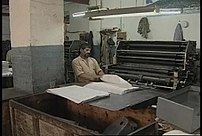by: Jesse Dawson
Writing is not really an art. It is a craft – and you can learn a craft. Follow these four techniques to improve the quality of your writing, no matter what type of writing you do. Writing Tip #1: After you run your spell checking software, go back and re-read your writing. Few people are good spellers, which is why so many of us rely on spell checking software. Unfortunately, spell checkers have their own flaws and sometimes flag silly errors. For example, the words "form" and "from" are both good, legitimate words. But if you wrote a business letter that said, "We took $200 form your checking account to cover the payment," most spell checkers won't catch that oversight. Yet this simple typo changed the meaning of the sentence. Spell checkers are a convenience; they are neither authoritative nor foolproof, so don’t rely on them. Always read through your writing at least once after you spell check -- and keep a dictionary handy. Writing Tip #2: Use that famous "KISS" principle for your punctuation. You know the rule, don't you? "Keep It Simple, Stupid." Apply this rule to punctuation. If you don't know how or when to use a semicolon, then avoid semicolons; you'll only display ignorance if you get it wrong. In keeping with that KISS principle, limit your use of commas. Far too many people use far too many commas. Just because a sentence is long does not mean it needs a comma. Well-placed commas make reading easier. Commas thrown in simply to break up words are incorrect and distracting. Another important rule of punctuation is to avoid using exclamation marks, almost always. If your choice of words, sentence structure, and overall prose don't convey the sense of excitement you are seeking, then using an exclamation mark won't do it. If your writing conveys your sense of excitement, an exclamation point is, well, pointless. Writing Tip #3: Make sure your writing is grammatically correct. You don't need the skills of an English teacher to use correct grammar. You simply need to learn the basics -- verbs and subjects agree in number, for example. That is, "he was" is correct; "they were" is correct. To say "they was" is incorrect. If you are not sure about using grammar, especially if English isn't your "first" language, go to some good reference sites for fundamental English grammar and usage. (If you are writing in another language, the same advice holds true for that language.) Invest in a good, basic grammar book or style manual. Check with any bookstore, online or offline, and you can find one. 4. When you finish some writing, put it aside for a couple of hours or days (if possible), then re-read it before you let go of it. Of course, if you're writing or dictating a business letter or other "time-sensitive" document, this may not be possible. If you set your article or story aside for a day, then re-read it, you may notice glaring errors or want to make significant changes. And you thought before you had finished. Many writers and teachers have commented that all true writing is done in the rewriting. Take that advice to heart and you will significantly improve your writing. These four steps, rechecking your spelling, taking care with punctuation, watching for fundamental grammar errors, and rewriting, will improve your writing. They are proven tools used by every wordsmith.
About The Author
Jesse Dawson recommends using http://www.whitesmokesoftware.com/ to improve your writing and fix embarrassing grammar mistakes. Dawson is the author of "Can YOU Read Me Now?," a free e-book on using readability formulas to write better, available at http://www.readabilityformulas.com/.
Optimization of the articles and press releases
| Journalism, Publishing, Short story, Writers Resources Image by fmc.nikon.d40 via FlickrArticles and press releases are two very useful search engine marketing strategies that many traders still use today. But unlike in the past that the press articles and can be easily found by the online community, the enormous number of articles and press releases today have made it more difficult for one who stood out from the rest. Now it's almost impossible that a press release about your new product or an article to be read by all.
Image by fmc.nikon.d40 via FlickrArticles and press releases are two very useful search engine marketing strategies that many traders still use today. But unlike in the past that the press articles and can be easily found by the online community, the enormous number of articles and press releases today have made it more difficult for one who stood out from the rest. Now it's almost impossible that a press release about your new product or an article to be read by all.
However, many companies still send press releases and articles. Fact of the matter is, there are some articles and press releases are read by customers. Despite the heavy competition, there is still a way to reach their customers through the articles and press releases. The key is to create something that captures their attention and intrigued enough to investigate and go to your site, user profile, or information center.
Here are some tips on how to make an article or press release that are among the thousands of other articles and press releases:
Press releases and articles are also addressed. We know that. Do not write and publish something only for ourselves, we do so for the benefit of others, too. When marketing, press releases and articles are intended to be read by your target audience and keep in mind when creating the press release or article.
Know your target audience will allow you to write in a way that if you are "speaking their language." You know who to communicate to your target market and in the process of capturing their attention. It may include facts and information that you know would be beneficial to them and will therefore be of interest to them. You will also be able to optimize their press release or article to the definition of the best words to know what keywords your target audience is looking for.
Knowing who your target audience, you can research on what keywords to focus on optimizing your article or press release. Once you've found the key word for the best article or press release, that as a basis to write. Optimizing keywords through assistance with their ranking on search engines and crawlers can read press releases and articles. If your article or press an issue, and has perfected it very well, is very high rank in search engines.
You know there is a strong competition that exists. Thousands of pressure from the press and articles are sent via the Web through sites, e-mail, directories, and feeds. You have to do more than just write ... you need to write creatively! You have to think about how your article or press release can help customers better than the other articles and press releases. You need to give the public a reason why we should pick up your article or press release among the many thousands of others.
 Image via Wikipedia by: Simone Mary
Image via Wikipedia by: Simone Mary
The task of getting published is one of the daunting aspects of writing. This can be difficult, if you want to get published by a traditional publishing house. It's not as difficult if you want to self-publish. In this article I will share with you the steps involved in getting your work published either traditionally or through self-publishing.
Mainstream publishers are often reluctant to accept work from young writers as anyone under 18 cannot sign a contract on their own and will require parental involvement. That is not to say you cannot submit to them but make sure your work is of high quality as you will be competing with adult writers. There are also several publishers that cater specifically to young writers, for a list of these, check out the book THE YOUNG WRITER'S GUIDE TO GETTING PUBLISHED. There are also several sites on the web that accept work from young writers such as http://stonesoup.com and Merlyn's pen. Make sure you edit your work thoroughly and follow the submission guidelines for publishers carefully. Some publishers prefer that you send a query letter only at first describing your project. The query letter should be only one page long. If it is longer than that a busy editor will likely just throw it to one side. Think of the back cover summary yo!
u see on most books you buy, try to summarize what your book is about in a few words. This can be difficult but it must be done and done in a way that grabs an editor's attention. Some publishers will allow you to submit a query letter and a few chapters of your work or your entire book. It is important that you use the correct font, you can't go wrong with courier new 12 pt and a double spaced manuscript. The query letter can use the same font but there is no need to double space it.
Let's now take a look at self publishing. Self publishing has become quite easy with the advent of self publishers like Lulu. At http://lulu.com you can publish your work for free. However lulu does take a small commission of anything you sell. Lulu also sells ISBN's for around $100 U.S. dollars. An ISBN will make your book available for international sale. It will become available to places like http://Amazon.com, Barnes and Noble and hundreds of other distributors worldwide. When you self publish you set your own price and your age never becomes a factor as it will be with some traditional publishers. If you decide to self publish everything falls into your hands, from editing to formatting. Lulu provides several services for these publishing details, however the costs can add up for young writers. The good news is that with patience and determination you can do it yourself. Lulu provides !
templates for formatting your book. If you can find a teacher, friend or parent to help you with editing you are well on your way without breaking the bank. Lulu makes making your book cover as easy as possible although you are responsible for finding your own image if you do not wish to use their images.
Finally, there is nothing like seeing your work in print and the opportunities for young writers are greater than ever.
About The Author
Simone Mary is a teacher, writer and artist. She is the author of the eBook WRITING A STORY? WHAT EVERY WRITER SHOULD KNOW, for more writing strategies and for a free copy of the eBook GET ON THE HONOR ROLL-TEST AND EXAM TAKING TIPS THAT WORK visit http://www.thereadingandwritingshop.com
 Image via Wikipedia by: Trevor Johnson
Image via Wikipedia by: Trevor Johnson
So you've decided that history (or at least your friends and family) need to read your memoir. Just how do you go about starting to write your memoirs?
Start by deciding whether you are going to write about your whole life or just selected parts of it. In part, the decision will be made by how much you have experienced in your life and how old you are. Film stars and politicians often release more than one set of memoirs as their careers progress.
Then move onto an outline. Producing this will make sure that you don't forget to include important parts of your life. You're not looking for lots of detail at this stage, just making sure that you include all the important events that you want to talk about in your memoir. It may be worth making some headings such as "school years" or age ranges to help prompt you with doing this.
Dust off the cobwebs of your memory.
Look through old photographs. If you kept a diary that you actually wrote things in, read through this to help recall the different events in your life.
Talk to friends and family. Most of them will have certain events in your life lodged firmly in your mind. If your parents or grandparents are still alive, talk to them as they'll almost certainly have memories of your formative years that have slipped from your conscious mind completely.
Read over your CV or resume. This likely gives important milestones in your life and could well trigger your memories.
At this stage, you're looking for anything that will help you to remember the things you have done in your life. It's a bit like pulling teeth at first - the memories have been gathering dust in the canyons of your mind for years - but the more you do this, the more you'll start to recall.
Are you going to write or speak your memoirs?
There's software out there which will transcribe your speech and "write" your memoir for you. Depending on whether you are a good typist or not, this could be worth investigating. Or, if you prefer, you could just record your memoir and then pay a transcription service to type it up for you at a later date.
When you are writing, don't be tempted to edit yourself. Editing is a separate process and will stop the flow of words that you are speaking or typing. Just let the words flow onto the paper or screen (sometimes called a brain dump!) and then edit them at a later stage. You'll be pleasantly surprised at how little editing is needed when you work this way and how much your "voice" comes out in the words.
Once everything is complete, the decision is then how to publish your work. Whilst there are vanity publishers who will charge a fee to produce your book, that's not something I'd recommend. Instead, use one of the "print on demand" services like Lulu or Cafe Press to get your book professionally printed at an affordable price in quantities as low as just one.
About The Author
Trevor Johnson
Get more tips on writing a memoir and start the process of writing a memoir at http://www.squidoo.com/writingmemoir
by: Steve Manning
Here's a string of tips on writing a book. They're brief, succinct and very useful. These tips on writing a book have been designed to get you up and writing your book as quickly as possible.
They'll help you start writing, continue writing and finish writing your book. Your manuscript will be ready for the agent, or the publisher, or on its way to self publishing success.
Here are your tips on writing a book: Image via WikipediaYou can't start writing your book and continue writing until the book has been written. It's too big a job. It's going to take you a few days. Probably a couple of weeks.
Image via WikipediaYou can't start writing your book and continue writing until the book has been written. It's too big a job. It's going to take you a few days. Probably a couple of weeks.
People take years to write their book because they go at the task sporadically. You've got to write every day. If you don't, you find yourself having written nothing for months at a time.
Your book writing success or failure depends largely on the outlining process. Create an outstanding outline for your book and you're writing task becomes easy. You should know exactly what happens on every page before you start writing your first word.
If you think you can write your book by being spontaneously creative as you write, you're wrong. You're welcome to try, just about every novice author does. But I'd bet money it won't work for you. Create the exhaustive outline.
Your outline should consist of a series of questions: What does the library look like, how is she dressed, why does he feel so angry, what does she do when she reaches the house. It's simply easier to write in response to a question than it is to write in response to a statement.
Spend a short time writing to answer each question. Just a few minutes. You don't want this to become a protracted bunch of puff. You want real story.
Don't stop until the book is finished. There's a real tendency to stop and edit the work that you've just completed. After all, editing is a lot easier to do than the actual writing. So you can feel that you're still working, but it won't be as difficult. Don't do it! Keep writing until the book is finished.
Give yourself a period for writing and stick to that amount of time come hell or high water. Even if it's just 15 minutes a day. Initially you're just going for the discipline. Eventually you'll get the writing quality as well, but the discipline is most important factor for the completion of your work in the shortest amount of time possible.
Doing research for your book writing can be fun. But don't do it until after the book is written. If you come to a point where you've got to get a piece of information that you don't have in you head, just put down an asterisk and keep the flow of the book going. After the manuscript is finished, you can look back for all those asterisks and get just the information you need.
About The Author
Steve Manning is a master writer showing thousands of people how they can write their book faster than they ever thought possible. Here's your free Special Report, http://www.WriteABookNow.com/main.html
Techniques to Make Quick Money Writing Articles
| Affiliate Programs, Web search engine, Webmaster Resourcesby: Jo Mark
For the most part, article marketing is a long distance race, not a sprint. By writing articles and submitting them daily, you will increase the amount of traffic to your site and see improved profits (as traffic builds). The more you submit, the greater your benefit. But, even if you submit ten articles this week, don’t expect to retire any time soon. As I said, it is a long distance race.
However, there are techniques that you can use to make some quick money writing articles. From time to time, certain niches will capture the public’s attention and there will be a flurry of interest in that sector. If you discover the trend, you can make some quick money with your articles. Following are several ways to profit writing articles:
It all starts out by doing some research. Look for niches (or products) that everyone is talking about. Forums are a good place to find this type of information. Hang out in these forums and look for postings that have a large number of responses. Read through a number of these items. If it related to a single product or niche, you may have found an exploitable subject.
You can also find hot products doing research on Ebay. Search for popular products that have sold well during the past 2 weeks. If you find several products that are selling really well and are related to a common theme, you may have found a hot area to exploit with your articles.
Lastly, check your bulk emails. This is one my favorite (and easiest) ways to find hot topics. When you see an explosion of emails on one subject, it is a pretty good bet that the niche is hot. Image via Wikipedia
Image via Wikipedia
Once you find a hot topic, do research to find an affiliate program that is offering a product in the same area. Research the topic so that you can write knowledgably about the subject. Develop effective article titles using keyword research. Make sure to include two or more keywords in each title, because you will want the search engines to pick up your article. Write five to ten articles on the subject. Submit one to two articles per day to the largest article directory sites. Make sure your article contains a link to the affiliate program you found previously. Or, you can direct readers to your site and re-direct them to the affiliate program from there.
If the niche remains hot for some time, you can make a fair amount of money from this technique.
When you write articles, be sure to keep readers in mind. Studies have shown that most Internet readers tend to scan a page to find the information they are looking for, rather than to read the full page. This means to have good titles, many subtitles, and make use of bullet points to help readers to scan the page. Viewers prefer a site like this that are easy to use and will be more willing to come back to your website time and time again. The more that your readers back, the more opportunities you have to get them to click on each of your affiliate links. Failing to write your articles in this way, or to get them written in this way, can make the visitor away before they even have a chance to see what you have to say or know what your affiliate links are all about. Holder articles organized as recommended will keep the visitors back and make it possible for it to continue to make money for you.
When you select an article for your site, ensure that there is a length that is optimal for search engine optimization efforts. Articles that are as short as 200 words or as long as 500 words should fit into this category. Although the search engine optimization is not your goal, it is still a good idea to keep your articles in this length of your reader's sake. They are unlikely to be finished with your side if it is longer. This could leave them Kith only half of the information you want them to have or to leave them with the impression that your site is too "wordy". Most Internet readers do not read a Web page that they would make a book, so the shorter the better. Even if it means to divide up a long idea to 4 or 5 pages. Be sure to label them so that the reader can pick and choose which parts they want to read or so they know what will be next to help them decide whether they want to continue reading.
Be A Rich Writer, Join Paid Blogging Program
| Blog, Economics, Home, Kids and Teens, Microsoft Money, Personal Finance, School Time, Social StudiesAre you a writer and blogger? Make your hobby to turn money coming to your wallet. It’s very simple way job. Please chose product list from ">Bloggerwave and write simple review in 50 words. Yes, only 50 words, it’s true!. You can make money every day and every time with paid review programs.
E-book: Become A Model
| Autos, Makes and Models, Miley Cyrus, Playboy, Recreation, Vanity Fair, Vogue, Volkswagen
The best thing about being a model can you get from e-book Become A Model. Imagine your beautiful photos taken for Vogue or Playboy magazine. Wow! Read this book quickly.
The other way to become your dreams come true is to join Beauty contest from http://www.lookoftheyear.com. Are you interest to this chance, young girl? Read More..
Read More..
![Reblog this post [with Zemanta]](http://img.zemanta.com/reblog_e.png?x-id=a7e0ac85-a9aa-4936-899e-1d31128fcf78)
![Reblog this post [with Zemanta]](http://img.zemanta.com/reblog_e.png?x-id=99be7c8d-ab88-4bf6-ae92-b1e72e6c2f37)
![Reblog this post [with Zemanta]](http://img.zemanta.com/reblog_e.png?x-id=cb50fcc2-dc75-4889-857d-217fd818c8f4)
![Reblog this post [with Zemanta]](http://img.zemanta.com/reblog_e.png?x-id=a12773da-4684-44b4-99af-bbbeb5bf066d)
![Reblog this post [with Zemanta]](http://img.zemanta.com/reblog_e.png?x-id=aa128d38-5581-4c53-b576-4deb790d385a)







